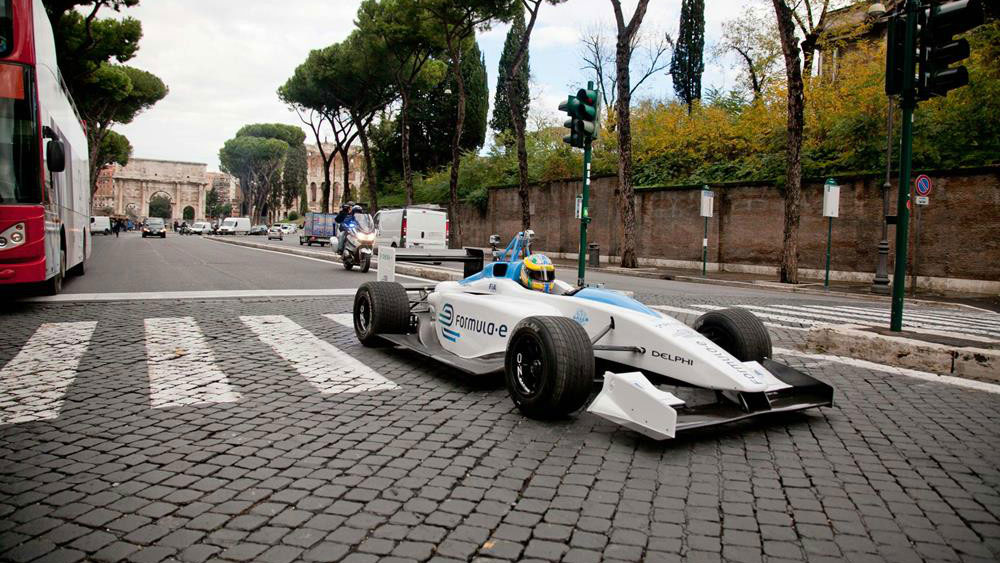Driverless cars are going to turn Formula E into a giant Scalextric
Exciting races, without the ego

Earlier today, Formula E and Kinetik announced a partnership that will introduce self-driving car races to the Formula E Championship. The series of races, named Roborace, will appear in the form of support races before the main driver championship.
Roborace will use the same circuits in the major cities around the world, and feature 10 teams with two cars each. The races will be two hours in duration.
Although there are no images of the cars just yet, you can expect them to be similar in size and appearance to the current Formula E cars. They'll compete using real-time computing algorithms and artificial intelligence.
All vehicles in the race will be identical mechanically, ensuring the race is decided by software brilliance, rather than engineering know-how.
When questioned on whether potential viewers will the personalities in motorsport, Alejandro Agag, CEO of Formula E said he expects the software engineers to become the sport's personalities, and of course, it's mandatory that each car will have a name.
Developments to affect road cars
There have been no teams announced either, but Denis Sverdlov, founder of Kinetik, said we can expect OEMs which have a vested interest in autonomous driving [such as Volvo, Ford, or Audi] as well as technology companies [including Google or NVIDIA]. Although one team will be an entirely crowd-sourced entry.
Sverdlov told techradar, that we can expect to see technology filter into future road cars, "Everything we do here could be used in the road car. Everything about the battery, everything about machine vision and vehicle to vehicle communications.
Get daily insight, inspiration and deals in your inbox
Sign up for breaking news, reviews, opinion, top tech deals, and more.
"Even something like a standard telecoms infrastructure could also be improved for online video and entertainment. A number of aspects in the developments we make will go into normal cars."
Looking forward to the prospect of a driverless race? You won't have long to wait, Sverdlov says he has, "a date in mind, but we don't want to announce it yet, because we need to approach teams and discuss their commitment. But we hope to be race-ready in season three, which is 2016/2017.
"We have a prototype, not a sports car, but it functions. It has all the components, such as batteries, motors, electronics, it's all there. We also have the computer vision. But there are still many challenges when travelling at super-high speeds, one of the biggest is the positioning, because GPS just isn't good enough at these speeds.
"It's going to be challenging, but we really feel that all of those technologies are almost there, so it's take too much time to make it happen."